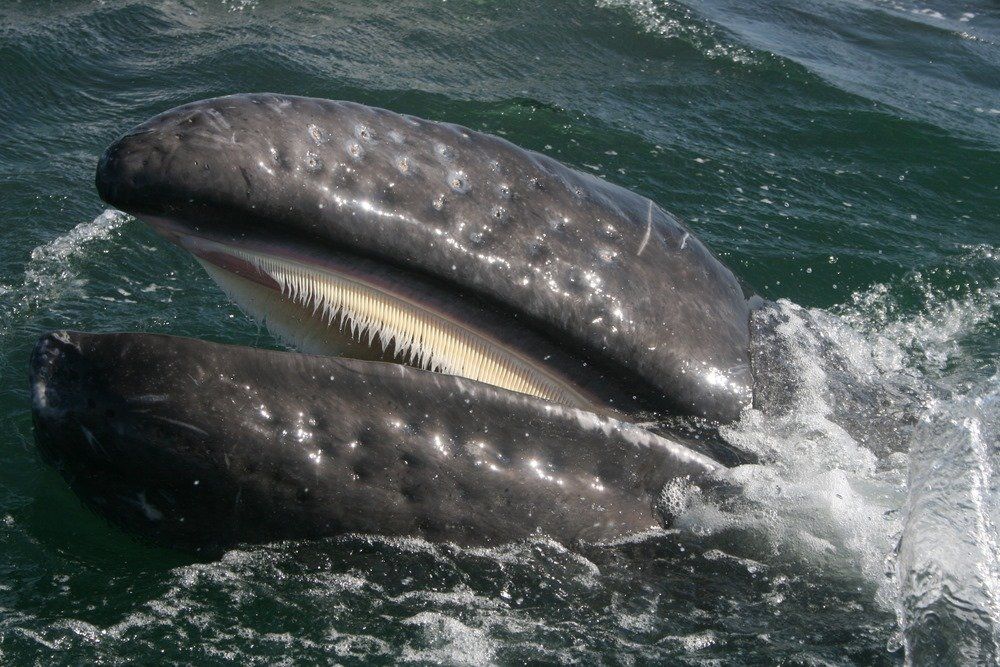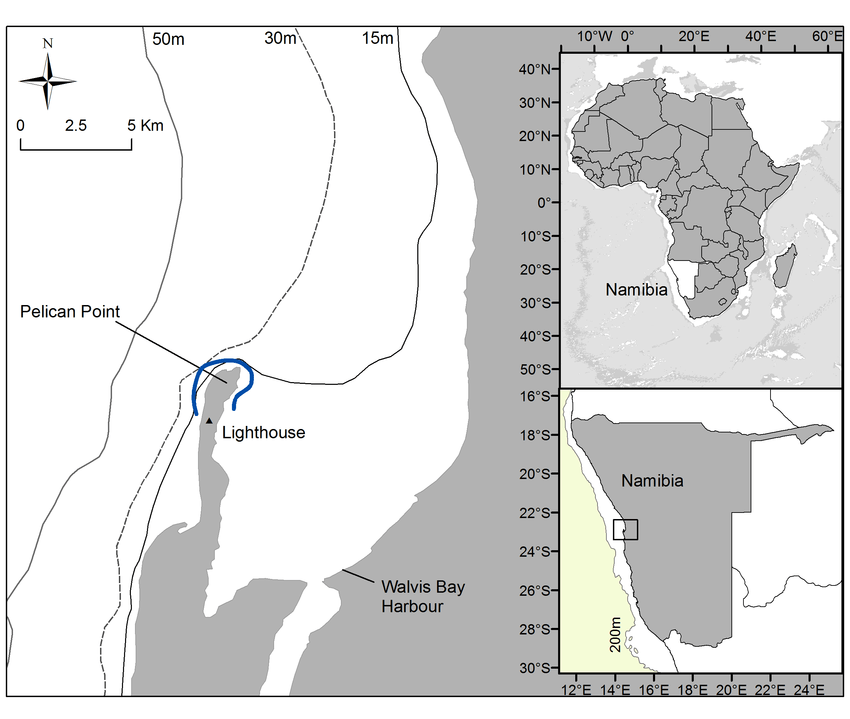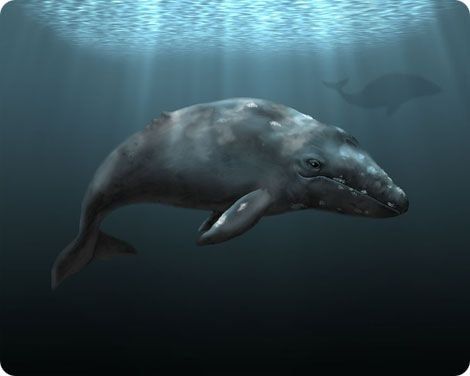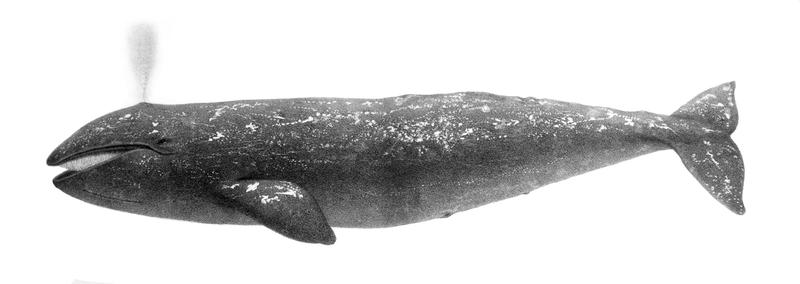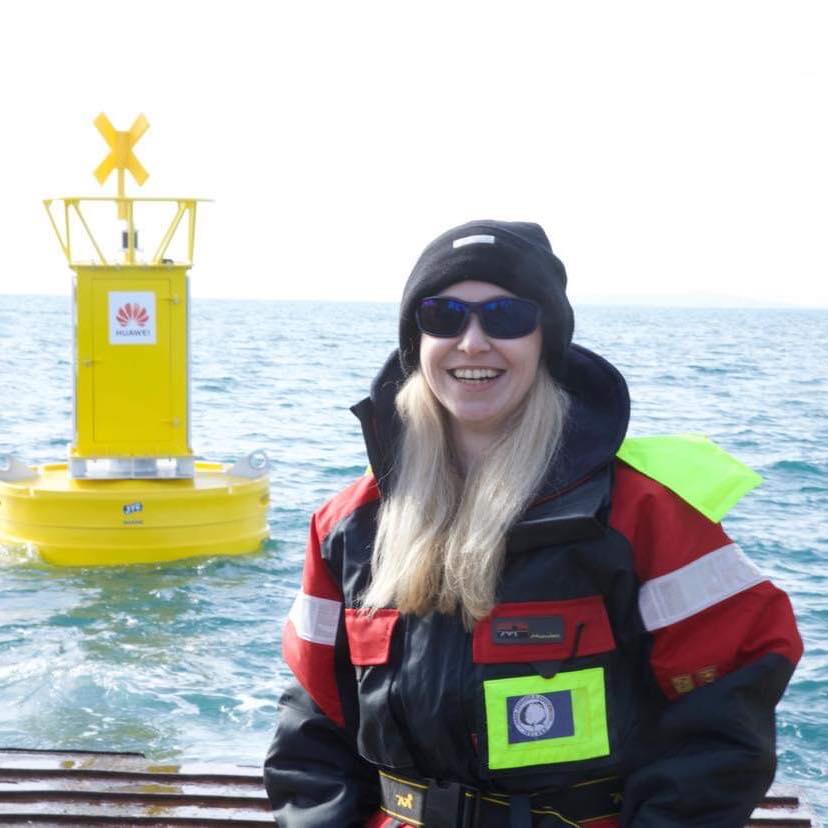GRAY WHALES OCEAN HOPPING FROM THE N. PACIFIC TO THE N. ATLANTIC OCEAN!
EMER KEAVENEY | JANUARY 17TH 2021.
Pacific grey whales have been reported in the North Atlantic Arctic, having transversed the Bering Strait and Northwest Passage, opening up what researchers have referred to as "the ocean highway between the Pacific and the Atlantic".
The impacts of climate change ripple across the globe, but have been most felt at the poles, the Antarctic and the Arctic. On the 9th of May, 2010, marine biologist, Aviad Scheinin captured a photograph of a Gray whale (
Eschrichtius robustus) off the coast of Israel. There was much skepticism among his fellow colleges as the Gray whale (
Eschrichtius robustus) had not been recorded outside of the Pacific Ocean since the 18th Century. Then a couple of weeks later, on May 30th, the same whale was sighted off the east coast of Spain. Whalers were thought to have harpooned the last Atlantic gray whale over 200 years ago. In 2013, another gray whale was reported again in the Atlantic, only this time it was much farther afield, in Walvis Bay, off the coast of Namibia, southern Africa. This is the first known record of gray whalesin the Southern Hemisphere, emphasising our need to enhance how climate is impacting whale populations. This sighting also raised questions as to how the whale arrived in the Southern Atlantic ocean, whether it journeyed around Cape Horn at the tip of South America and crossed the Atlantic, or whether like the Mediterranean sighting, if it arrived to the Atlantic via the "ocean-hopping highway" in the Arctic.
To date, the Arctics wall of sea ice made polar "ocean-hopping" impossible as whales are mammals, and so, must surface every few minutes to take a breath, so cannot transverse frozen seas. The now extinct Atlantic gray whale, along with the North Atlantic right whale were popular prey for the whaling boats that plied coastal waters in the 1600s and 1700s because they could be found relatively close to shore. The right whale was considered the "right" whale to hunt by whalers because they were easy to kill and floated for a long time after they died making harvesting their blubber for oil easier.
The Atlantic gray whale was not so lucky; it was considered functionally extinct by the early 1700s and no sightings were recorded after about 1740 - until recently. Today only two populations of gray whales are found in the North Pacific Ocean. They range as far south as Baja California and Mexico on the west coast of America, and the Korean Peninsula, where they breed during the summer months.
A study published in
Marine Biology Records in 2015 analysed the DNA sequences of gray whale fossils, both from the Atlantic and Pacific populations and found that they used to belong to the same population. The results, revealed that dispersion between the two oceans took place several times before and at least once after the last ice age. These whales are believed to have visited the Scotian Shelf, the Gulf of St Lawrence, the Grand Banks, and, possibly, Hudson Bay.
The Grey Whale is a large greyish coloured baleen whale. (Baleen whales have long, thin plates of keratin or baleen hanging from their upper jaws in place of teeth). The Grey Whale's body is heavily parasitized and marked with white scars. It has a small head; a large mouth; nostrils above the eyes; large, broad, pointed pectoral flippers; and rows of hair on the jaws. This whale has no dorsal fin, but it does have a row of humps located in the lower part of the back. The maximum length of these whales is 15 m; the females are larger than the males. At birth, calves measure 4.5 to 5 m.
Today, melting Arctic sea ice is opening up the passageways from the Pacific to the Atlantic Ocean. Allowing highly mobile Arctic marine mammals to more easily stray north and stay longer in an area to feed. The absence of ice might also allow them to travel from west to east.These genetic data on gray whales and recent observations in the Atlantic suggest the possibility that this species might be expanding its range once again.
Ireland is not alone in our fair share of Arctic visitors, on January 1st 2020, a hooded seal (Cystophora cristata) stranded on the shores of West Cork. In recent weeks, there have been reports of warm water forage fish species, anchovies, similar to our sandeels, arriving off the south-west coast in huge numbers, and with it attracting all sorts of inshore feeding activity, with pods of up to 60 short-beaked common dolphin feeding inshore from Myrtleville to inside Cork Harbour since late December 2020.
Shifts in top predator species distributions in response to changing oceanographic and meteorological conditions creates a variety of possible species to arrive in Irish waters, and create the possibility of all kinds of rare sightings for ocean observers. Changes in marine megafauna distribution can be monitored by citizen scientists by uploading images and filling our a two-minute report of your sightings to the Observers App, available on Google Play.
References
:
Alter, E., Meyer, M., Post, K., Czechowski, P., Gravlund, P., Gaines, C., Rosenbaum, H.C., Kaschner, K., Turvey, S.T., Van Der Plicht, Shapiro, B., Hofreiter, M., (2015). Climate impacts on transocean dispersal and habitat in
gray whales from the Pleistocene to 2100. Molecular Ecology, 24, 1510–1522.
Elwin, S., Gridley, T., (2013). Gray whale (Eschrichtius robustus) sighting in Namibia (SE Atlantic) - first record for Southern Hemisphere. Conference: IWC. Volume: Paper SC/65a/BRG30 submitted to the Scientific Committee of the IWC.
Scheinin, A., Kerem, D., MacLeod, C., Gazo, M., Chicote, C., & Castellote, M. (2011). Gray whale ( Eschrichtius robustus
) in the Mediterranean Sea: Anomalous event or early sign of climate-driven distribution change? Marine Biodiversity Records,
4
, E28. doi:10.1017/S1755267211000042

